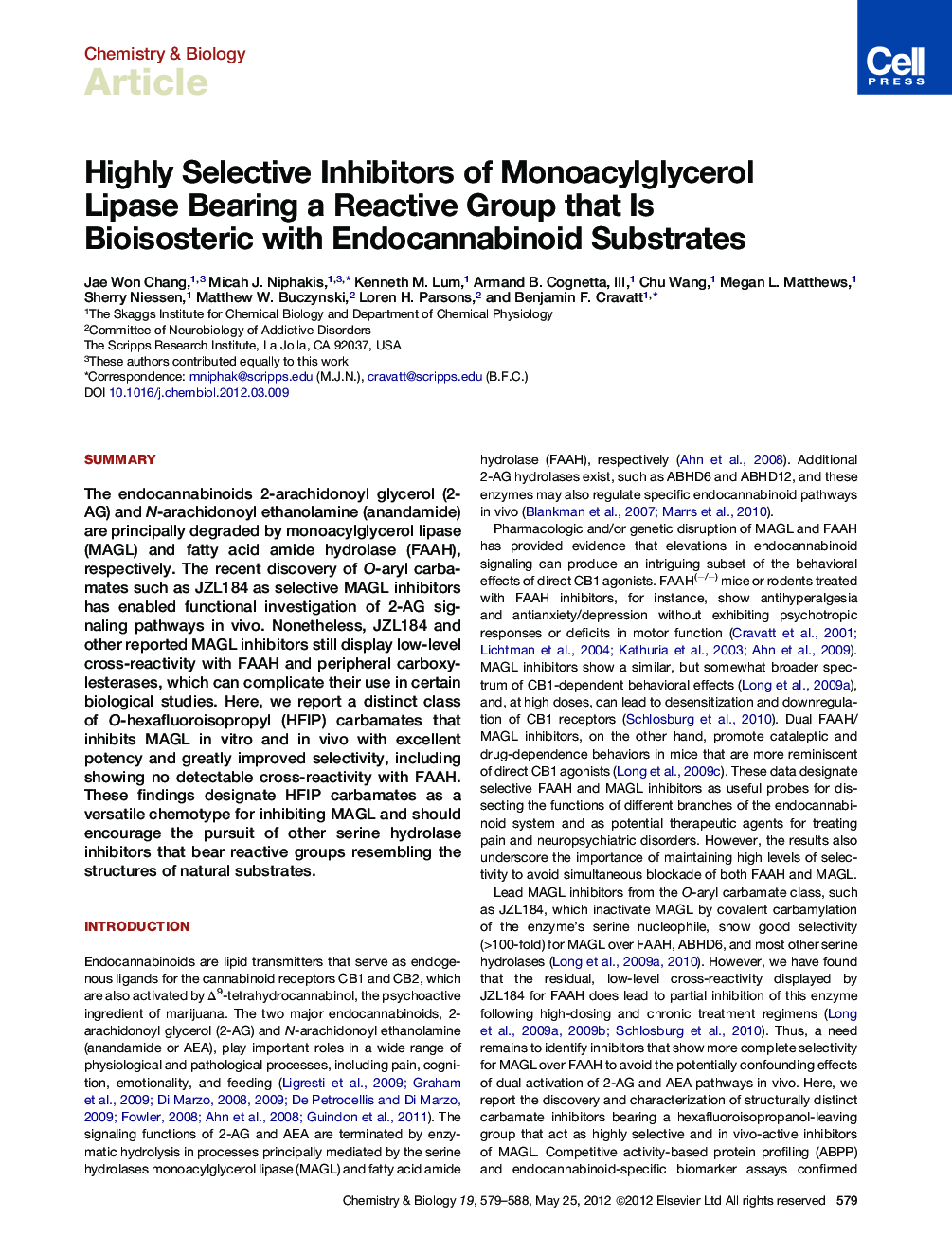| Article ID | Journal | Published Year | Pages | File Type |
|---|---|---|---|---|
| 1391308 | Chemistry & Biology | 2012 | 10 Pages |
SummaryThe endocannabinoids 2-arachidonoyl glycerol (2-AG) and N-arachidonoyl ethanolamine (anandamide) are principally degraded by monoacylglycerol lipase (MAGL) and fatty acid amide hydrolase (FAAH), respectively. The recent discovery of O-aryl carbamates such as JZL184 as selective MAGL inhibitors has enabled functional investigation of 2-AG signaling pathways in vivo. Nonetheless, JZL184 and other reported MAGL inhibitors still display low-level cross-reactivity with FAAH and peripheral carboxylesterases, which can complicate their use in certain biological studies. Here, we report a distinct class of O-hexafluoroisopropyl (HFIP) carbamates that inhibits MAGL in vitro and in vivo with excellent potency and greatly improved selectivity, including showing no detectable cross-reactivity with FAAH. These findings designate HFIP carbamates as a versatile chemotype for inhibiting MAGL and should encourage the pursuit of other serine hydrolase inhibitors that bear reactive groups resembling the structures of natural substrates.
Graphical AbstractFigure optionsDownload full-size imageDownload high-quality image (160 K)Download as PowerPoint slideHighlights► Hexafluoroisopropyl (HFIP) carbamates are potent and selective MAGL inhibitors ► HFIP carbamates appear to inhibit MAGL in part by substrate mimicry ► HFIP carbamates show minimal cross-reactivity with other serine hydrolases ► HFIP carbamates are active against several mammalian isoforms of MAGL
